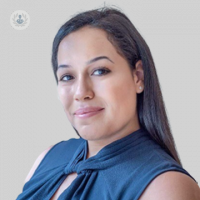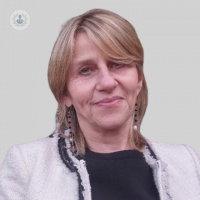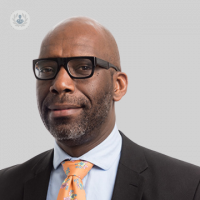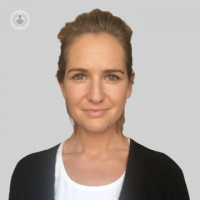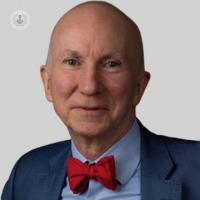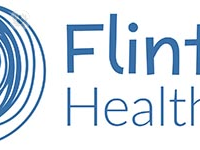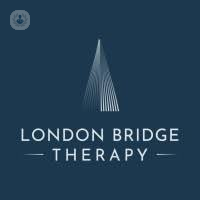What is relationship counselling?
Relationship counselling is a type of psychotherapy aimed at analysing and solving conflicts that arise in a relationship. Depending on the type of problems a couple has, the specialist adapts the treatment and the frequency of sessions to find the best solution for the relationship.

Objectives of relationship counselling
The main objectives of relationship counselling are:
- Recognising the problem
- Understanding behaviour patterns (usually repetitive and toxic)
- Establishing a new partnership to renew the relationship
- Changing attitudes
- Renewing healthy communication
However, relationship counselling is not only about resolving conflicts; it is also about diagnosing and dealing with cases where the best solution is to separate, providing support for the people affected and guiding them so that it is as non-traumatic as possible.
When to go to relationship counselling
When a relationship starts to deteriorate and both parties feel that there is no way out, it is time to consider seeing a specialist who can provide advice and guidance. Normally, one partner in the relationship raises the alarm, but the other partner must be willing to collaborate, otherwise therapy will not be effective.
Keep in mind that separation is always an option, but you can first visit a specialist who will provide a series of guidelines to change the habits of the relationship and redirect it.
Reasons for going to relationship counselling
The most frequent problem the specialist is consulted about is a breakdown in communication between parties. Recurrent and destructive arguments are another main cause for relationship deterioration, along with habits, a frenetic pace of life and work overload.
11-13-2012 08-25-2023Relationship counselling
What is relationship counselling?
Relationship counselling is a type of psychotherapy aimed at analysing and solving conflicts that arise in a relationship. Depending on the type of problems a couple has, the specialist adapts the treatment and the frequency of sessions to find the best solution for the relationship.

Objectives of relationship counselling
The main objectives of relationship counselling are:
- Recognising the problem
- Understanding behaviour patterns (usually repetitive and toxic)
- Establishing a new partnership to renew the relationship
- Changing attitudes
- Renewing healthy communication
However, relationship counselling is not only about resolving conflicts; it is also about diagnosing and dealing with cases where the best solution is to separate, providing support for the people affected and guiding them so that it is as non-traumatic as possible.
When to go to relationship counselling
When a relationship starts to deteriorate and both parties feel that there is no way out, it is time to consider seeing a specialist who can provide advice and guidance. Normally, one partner in the relationship raises the alarm, but the other partner must be willing to collaborate, otherwise therapy will not be effective.
Keep in mind that separation is always an option, but you can first visit a specialist who will provide a series of guidelines to change the habits of the relationship and redirect it.
Reasons for going to relationship counselling
The most frequent problem the specialist is consulted about is a breakdown in communication between parties. Recurrent and destructive arguments are another main cause for relationship deterioration, along with habits, a frenetic pace of life and work overload.


How improving your self-esteem can lead to healthier relationships
By Dr Kerry Ashton-Shaw
2024-12-21
Healthy relationships and healthy self-esteem go together. However, it’s easier said than done, and how can we improve this essential part of the human psyche? Leading consultant clinical psychologist Dr Kerry Ashton-Shaw can help. She has provided a helpful guide all about self-esteem, considering the cycle that maintains low self-esteem and also includes a helpful quiz we can take to get an indication of our self-esteem levels. See more


Committed relationships: the key to a happy life
By Dr Kerry Ashton-Shaw
2024-12-21
Committed, close, happy relationships are proven to have a positive impact on longevity, well-being, productivity and immune function. These relationships are beneficial and make life worth living. The big question is, how do we become a part of a happy and committed romantic relationship? This is a complex question, however, fortunately, psychologists have been researching this topic for many years. Highly experienced and trusted consultant clinical psychologist Dr Kerry Ashton-Shaw explains the benefits and ingredients of committed relationships. See more


How can lawyers navigate personal relationships?
By Dr Catherine Sykes
2024-12-21
It cannot be denied that a career in law is challenging. Unfortunately, the demands faced by lawyers do not only apply to their work life, but can also extend to their personal lives, impacting their personal relationships. Revered chartered psychologist Dr Catherine Sykes examines how lawyers can maintain both their careers and personal relationships. See more
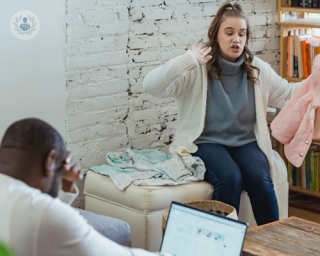

The impact of burnout on relationships
By Dr Catherine Sykes
2024-12-20
Psychological theory states relationships are essential to human survival. However, it can be difficult to balance them alongside our work - this is when things can lead to burnout. It can have a significant effect on romantic love, friendships or with our family when it occurs, among many other relationships in our lives. Top Doctors speaks to leading chartered psychologist Dr Catherine Sykes all about burnout, its impact on relationships and what can be done to achieve a more balanced and fulfilling approach. See more
Experts in Relationship counselling
-
Dr Nikki Scheiner
PsychologyExpert in:
- Functional neurological disorder
- Post-traumatic stress disorder (PTSD)
- Depression
- Anxiety
- Obsessive compulsive disorder (OCD)
- Relationship counselling
-
Dr Nicky Kimber-Rogal
PsychologyExpert in:
- Psychotherapy
- Anxiety
- Work stress
- Relationship counselling
- Cognitive behavioural therapies
- Cognitive analytic therapy
-
Dr Tim Ojo
PsychiatryExpert in:
- Personal development
- Mood disorders
- Relationship counselling
- Work stress
- Depression
- Anxiety
-
Dr Kate Du Toit
PsychologyExpert in:
- Relationship counselling
- Stress
- Psychotherapy
- Anxiety
- Attachment issues
- Post-traumatic stress disorder (PTSD)
-
Dr George Fieldman
PsychologyExpert in:
- Anxiety
- Depression
- Work stress
- Relationship counselling
- Autism
- Coaching (personal development)
- See all

The Mindful Psychology Practice
The Mindful Psychology Practice
302 Archway Road
No existe teléfono en el centro.
By using the telephone number provided by TOP DOCTORS, you automatically agree to let us use your phone number for statistical and commercial purposes. For further information, read our Privacy Policy
Top Doctors

Flint Healthcare
Flint Healthcare
8, Hunns Mere Way, Woodingdean Office Campus, Brighton
No existe teléfono en el centro.
By using the telephone number provided by TOP DOCTORS, you automatically agree to let us use your phone number for statistical and commercial purposes. For further information, read our Privacy Policy
Top Doctors

London Bridge Therapy
London Bridge Therapy
Borough Townhouse, 70 Borough High St
No existe teléfono en el centro.
By using the telephone number provided by TOP DOCTORS, you automatically agree to let us use your phone number for statistical and commercial purposes. For further information, read our Privacy Policy
Top Doctors
-
The Mindful Psychology Practice
302 Archway Road, North LondonExpert in:
- Addictions
- Anorexia
- Anxiety
- Panic attacks
- Depression
- Integrative medicine
-
Flint Healthcare
8, Hunns Mere Way, Woodingdean Office Campus, Brighton , BrightonExpert in:
- Depression
- Psychosis
- Psychiatry
- ADHD
- Bipolar disorder
- Post-traumatic stress disorder (PTSD)
-
London Bridge Therapy
Borough Townhouse, 70 Borough High St, SE1 South Bank LondonExpert in:
- Anxiety
- Depression
- Psychology
- See all
- Most viewed diseases, medical tests, and treatments
- Alzheimer's disease
- Migraine
- Maternal mental health
- Pelvic pain syndrome
- Seizures
- Parkinson's disease
- Expert witness
- Anxiety
- Long Covid
- Medical cannabis prescription
